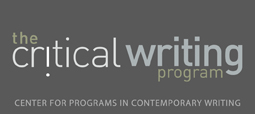Psychology
An Overview of the Discipline
Psychology is the study of the mind and the brain, and it attempts to understand individual human behavior. In this respect, psychology is distinct from the social sciences, which are more interested in interactions between people than the individual. Psychology is also distinct from neuroscience because it considers the individual as a whole.
Writing in the Discipline
Reasoning
Psychology is primarily explanatory. Typically, psychologists use far less rhetorical persuasion and rely on logical persuasion. However, there are areas where psychologists might use justificatory reasoning. For instance, Professor Ayelet Ruscio says, "The persuasive element is a rationale for conducting research and studies. Why are they relevant? What is their significance in the field and the world as a whole?" Professor Joseph Kable adds, "When you get to a discussion section of a research report, you are expected to come to a conclusion and justify that it is the right conclusion based on the data you have and other data that is out there; so it's not free of all attempts at persuasion." Research papers are primarily explanatory. However, there are important elements of persuasion. For example, the researchers must convince readers that the study is important, novel, and powerful and that the study used appropriate methodology.
Evidence
Evidence is almost always quantitative and data-based, with empirical data being the most highly valued. As Professor Ruscio states, "There is a systematic method to researching and obtaining empirical data that most people within the discipline follow and uphold. The qualitative aspect only can serve as a source of ideas and generating hypotheses."
Authorship
Almost every paper in psychology has more than one author. Psychologists will work together in relatively clearly defined groups to solve a clearly defined problem.
Goal
Psychologists seek to define and solve problems, primarily using quantitative data.
Writing Tips
Important Criteria for Student Writing
- Reasoning and evidence
- Having original ideas
- Organization
- Demonstrating mastery of others' ideas
Common Errors
- Relying on "common sense" – As Professor Kable notes, "We all live in a world and we all observe the world." However, psychologists cannot rely on personal experience as evidence in the field of psychology. A psychologist’s personal experience can lead him or her to develop an idea, but for that to stand as a validated theory, he or she must test the idea.
- Not evaluating the evidence – Students in psychology should not to simply accept evidence as accurate, but critically assess the quality of the evidence and understand its strengths and weaknesses.
Style
It is important to use language precisely and select words that clearly convey what they mean. A good writer will be able to convey his or her ideas persuasively, logically, and clearly.
Genres
Student Writing Assignments
- Media critique – Students review media reports on a topic in psychology and critically evaluate how the report was written and the evidence presented.
- Reaction/Commentary papers – Students write reactions to the assigned readings
- Research papers/Review of literature – Review literature on a particular topic and write an in-depth paper that evaluates what is and what is not known about the topic.
- Research article – Some students may be expected to write a short version of a research article, which includes an introduction, materials and methods, discussion, and conclusion.
Professional Genres
- Research articles
- Review articles
- Book chapters
Most psychologists write research articles following a clear format: explanation of the idea being tested, explanation of how it was tested, and an interpretation of the findings.
© 2013-2014 The University of Pennsylvania
Meet the Professors

Dr. Joseph Kable
"Student writers must unlearn some of the strict rules that were learned at an earlier stage..." More...

Dr. Ayelet Ruscio
"Need more information on writing tips for Professor Ruscio (and a bigger picture of her)..." More...
